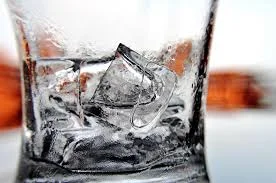We know all the list of things that can be bad for your teeth - soda, gummy candy, smoking, etc. But there are a handful of habits with the potential to wreck your chompers that may not be quite as obvious. Here's the low down ...
1. Chewing Ice
Ice can easily be thought of as harmless - its juts H20 after all. But crunching down on hard, frozen cubes can cause cracks, chips and wear on your teeth. If you chew ice regularly enough, you may even cause aches in the soft gum tissues around your teeth. Often times a habitual ice-chewer gets "shorter" tooth appearance from all the wear. Dr. Kivel can fix this cosmetic issue but will only do so after the patient has curbed their ice habit!
2. Playing Sports (Without Proper Protection)
We love sports! All of us here at Soulsmile not only grew up playing many sports, but still take part in a myriad of outdoor sports including biking (motorized and non-motorized, running, surfing, kayaking - you name it! But we are also huge proponents of mouth protection! Mouth guards are a piece of molded plastic that protects your teeth. Without it, contact sports can easily result in chips or even a full tooth knock-out. We can make these for you or your whole team. Just contact us to schedule an appointment.
3. Bottles Past Bedtime
Just like adults, a baby's teeth should be cleaned before bed. Putting a baby to sleep with a bottle of milk, formula or juice can put new teeth in harm's way. This can basically bathe the baby's teeth in sugars overnight. Its best to keep them out of the crib and establish a good hygiene routine.
4. Tongue Piercings
Dentists have long lamented tongue piercings. Accidentally bumping a metal stud along teeth for years can definitely pose a risk to your teeth. In a study published by the Journal of Periodontology, "nearly half of the participants who wore either long or short barbells for four or more years had chipped teeth." The study also found receding gums in up to 50% of participants who had worn long-stemmed barbells for two or more years. Furthermore, the mouth is a haven for bacteria, making tongue piercings a likely candidate for infection and sores. Bottom line - research the health risks before you decide on a tongue piercing.
5. Grinding
Bruxism (the fancy name for teeth grinding) wears teeth down over time. It is most often caused by stress and sleeping habits, making it a hard habit to control. We just wrote a whole blog on teeth grinding if you want to find out more about diagnosing an treating this condition.
6. Cough Drops
We'd like to think that anything you find in the medicine aisle is healthy, but that's just not the case. Most cough drops are packed with sugar. We still love them, but recommend that after you sooth a sore throat with a lozenge, break out the toothbrush. Think of them like hard candy!
Have any questions for us about habits that you suspect may be compromising your oral health? Feel free to write them in the comments section below or feel free to make an appointment with our Ashland, OR dental team here at Soulsmile. We'd love to have you in as a new patient!




